FM focuses on Kosovo at UN meeting
Foreign Minister Vuk Jeremić said in Geneva today that Serbia is proud of its progress in protecting human rights, but that the situation in Kosovo is bleak.
Tuesday, 02.03.2010.
09:32

Foreign Minister Vuk Jeremic said in Geneva today that Serbia is proud of its progress in protecting human rights, but that the situation in Kosovo is bleak. At the UN Human Rights Council meeting, Jeremic said that the Serbian government has almost completely achieved its goal of fulfilling all relevant international standards in that sector. FM focuses on Kosovo at UN meeting "Serbia is a place of tolerance where almost 30 ethnic communities live in harmony, not merely next to one another," Jeremic said. He said that in Kosovo, which is not under the direct jurisdiction of Serbia, "the standards for respecting human rights are falling far short of the acceptable minimum." "In a drastic contrast to the rest of Serbia, the human rights situation there (in Kosovo) is bleak. In this aspect, Kosovo is without question the darkest part of Europe," Jeremic said. He reminded of the fact that with UN Resolution 1244, passed in 1999, Kosovo was taken out of the direct jurisdiction of the Serbian government. The minister said that in the last decade, the number of Kosovo Serbs, Roma, Bosniaks and other minorities has decreased by half and that according to statistics of the UNHCR, more than 210,000 persons are still internally displaced. Jeremic also pointed to the criticisms of the UN Human Rights Committee, which stated that there is widespread discrimination against Serbs and Roma in Kosovo. Amnesty International had a similarly negative report on the human rights situation in Kosovo, he noted. Jeremic also stated that since June 1999 in Kosovo, more than 150 Serbian churches and monasteries were destroyed in unprovoked acts of cultural cleansing, among which 35 were destroyed in the March 2004 riots of ethnic Albanians. "While some holy places have been restored, the general situation is far from normal," Jeremic said. The minister added these churches in Kosovo are very important to the Serb people, stating that they are not monuments and museums, but a part of Serbia's national past, and warned that the Kosovo Albanian government is representing some holy sites and Serbian Orthodox churches without mentioning the fact that they are Serb. Jeremic also expressed concern that ethnic Albanian authorities in Kosovo are still prohibiting the use of the Serbian Cyrillic script in public places, official documents and the media. He said that these facts ought to "shock the conscience of this council", and that they represent a "tragic context" in which ethnic Albanian authorities unilaterally proclaimed independence for Kosovo on February 17, 2008. Jeremic noted that Serbia is in the final stages of the process for harmonizing its national laws with the existing conventions, protocols and agreements on human rights. In this context, he said that last year's adoption of laws against discrimination and the strengthening of effectiveness in existing domestic mechanisms related to people with disabilities, gender equality, child rights, and councils for national minorities. Jeremic said that Serbia will continue to improve its efforts in respecting human and minority rights and to abide by the highest standards for the protection of these rights, "not only because it is our international obligation, but because we believe that it must be everyone's moral imperative to do so". It was announced earlier today that during his stay in Geneva, Jeremic would meet with foreign ministers of Cuba and Thailand, Bruno Rodriguez Parrilla and Kasit Piromya, Secretary General of the Organization of the Islamic Conference Ekmeleddin Ihsanoglu, UN High Commissioner for Human Rigths Navanethem Pillay and Assistant High Commissioner for Refugees Erika Feller. Vuk Jeremic (FoNet, file)
FM focuses on Kosovo at UN meeting
"Serbia is a place of tolerance where almost 30 ethnic communities live in harmony, not merely next to one another," Jeremić said.He said that in Kosovo, which is not under the direct jurisdiction of Serbia, "the standards for respecting human rights are falling far short of the acceptable minimum."
"In a drastic contrast to the rest of Serbia, the human rights situation there (in Kosovo) is bleak. In this aspect, Kosovo is without question the darkest part of Europe," Jeremić said.
He reminded of the fact that with UN Resolution 1244, passed in 1999, Kosovo was taken out of the direct jurisdiction of the Serbian government.
The minister said that in the last decade, the number of Kosovo Serbs, Roma, Bosniaks and other minorities has decreased by half and that according to statistics of the UNHCR, more than 210,000 persons are still internally displaced.
Jeremić also pointed to the criticisms of the UN Human Rights Committee, which stated that there is widespread discrimination against Serbs and Roma in Kosovo.
Amnesty International had a similarly negative report on the human rights situation in Kosovo, he noted.
Jeremić also stated that since June 1999 in Kosovo, more than 150 Serbian churches and monasteries were destroyed in unprovoked acts of cultural cleansing, among which 35 were destroyed in the March 2004 riots of ethnic Albanians.
"While some holy places have been restored, the general situation is far from normal," Jeremić said.
The minister added these churches in Kosovo are very important to the Serb people, stating that they are not monuments and museums, but a part of Serbia's national past, and warned that the Kosovo Albanian government is representing some holy sites and Serbian Orthodox churches without mentioning the fact that they are Serb.
Jeremić also expressed concern that ethnic Albanian authorities in Kosovo are still prohibiting the use of the Serbian Cyrillic script in public places, official documents and the media.
He said that these facts ought to "shock the conscience of this council", and that they represent a "tragic context" in which ethnic Albanian authorities unilaterally proclaimed independence for Kosovo on February 17, 2008.
Jeremić noted that Serbia is in the final stages of the process for harmonizing its national laws with the existing conventions, protocols and agreements on human rights.
In this context, he said that last year's adoption of laws against discrimination and the strengthening of effectiveness in existing domestic mechanisms related to people with disabilities, gender equality, child rights, and councils for national minorities.
Jeremić said that Serbia will continue to improve its efforts in respecting human and minority rights and to abide by the highest standards for the protection of these rights, "not only because it is our international obligation, but because we believe that it must be everyone's moral imperative to do so".
It was announced earlier today that during his stay in Geneva, Jeremić would meet with foreign ministers of Cuba and Thailand, Bruno Rodriguez Parrilla and Kasit Piromya, Secretary General of the Organization of the Islamic Conference Ekmeleddin Ihsanoglu, UN High Commissioner for Human Rigths Navanethem Pillay and Assistant High Commissioner for Refugees Erika Feller.















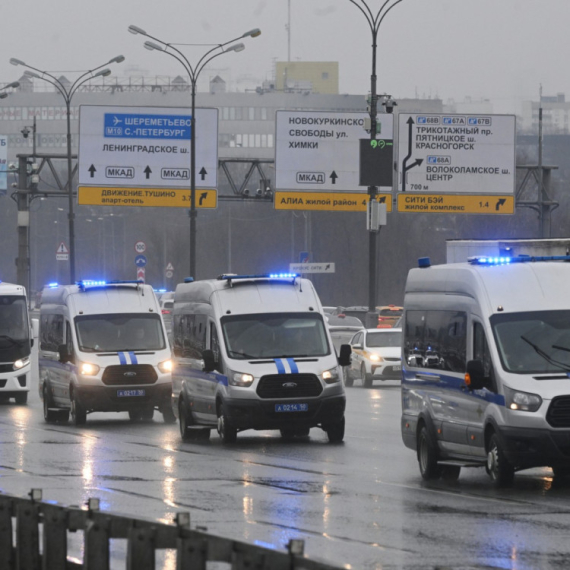
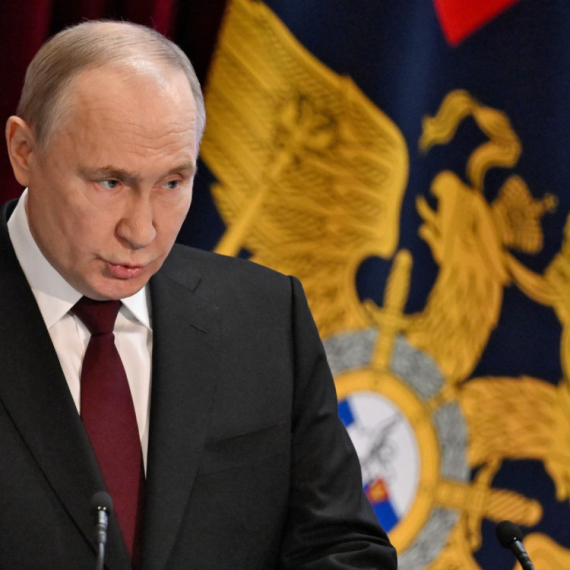
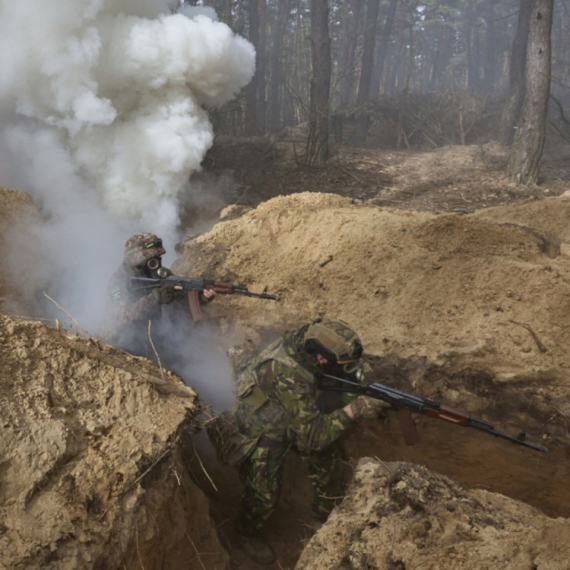
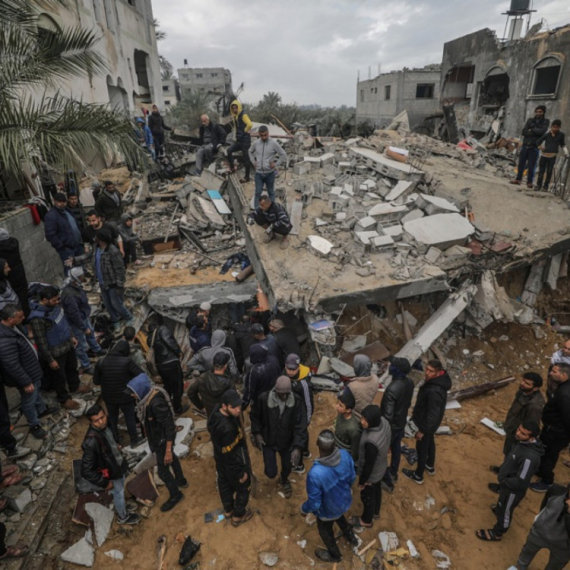
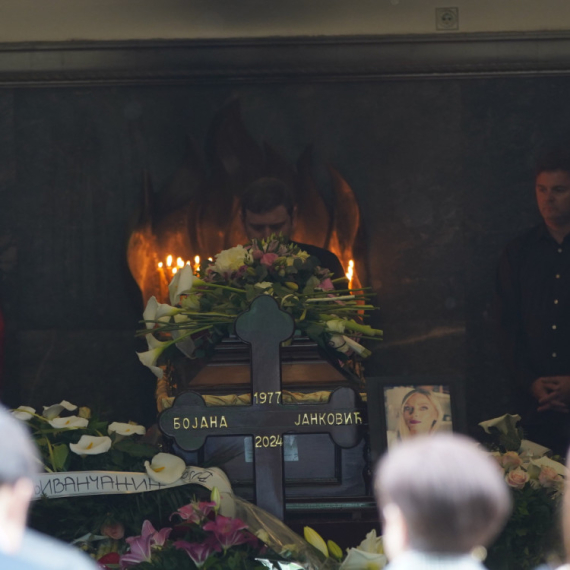
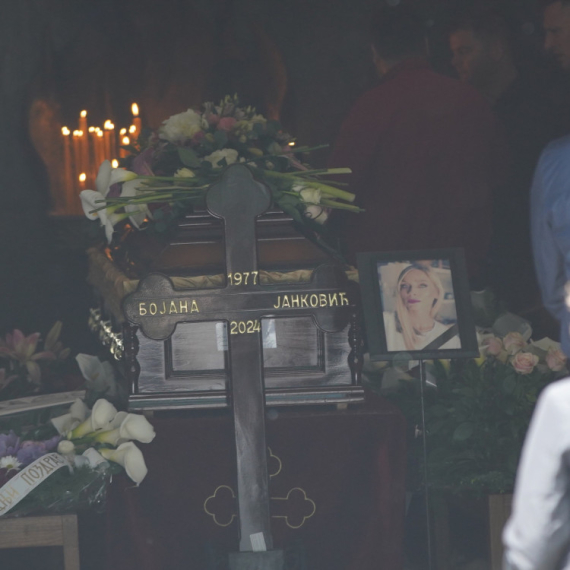









Komentari 13
Pogledaj komentare